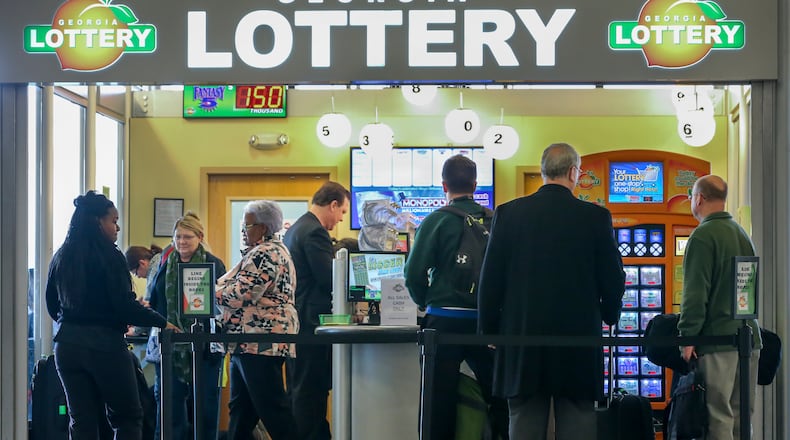Georgia’s top officials warned there could be “severe” consequences to lottery-funded education programs if the U.S. Justice Department doesn’t clarify a recent opinion that cast doubts about the legality of online state lotteries.
Gov. Brian Kemp and Attorney General Chris Carr sent a recent letter urging the Justice Department to revisit an opinion that, if strictly interpreted, could outlaw lottery tickets sold online and prohibit popular multistate games like Powerball.
The opinion involves an interpretation of the federal Wire Act, which was enacted in the 1960s to hobble the mob’s gambling business.
The Justice Department concluded in 2011 that the law doesn't apply to state-run lotteries, but the agency reversed course in November at the urging of casino magnate Sheldon Adelson, a Republican mega-donor.
That opinion declared that the law applies to any sort of gambling across state lines, putting a cloud over all online state lotteries. A federal judge has asked the department to clarify its decision, and the agency said last week it is still reviewing its procedures and will not prosecute states while it continues.
A strict interpretation of the rules could have hefty financial consequences for Georgia and other lotteries. An Associated Press analysis found that several states are in danger of losing at least $220 million in annual lottery profits if the opinion is imposed. An end to Powerball and other games would cost billions more.
The New Hampshire Lottery sued the Justice Department in February seeking to reverse the opinion, and about 15 states have joined the challenge. Georgia is not among them.
Online sales have become increasingly important for the Georgia Lottery, which sells some games tickets over the internet and offers a series of interactive “Diggi Games” available only online. Lotteries also often use online services to process payments, run communications and market games.
State officials were not immediately clear on the decision's fiscal fallout in Georgia, where the lottery transferred a record-setting $1.1 billion for pre-kindergarten and HOPE scholarship programs in 2018.
But the letter by Kemp and Carr said a ban on online lottery sales “would devastate the benefits provided to citizens in Georgia and across the nation through state lotteries.”
“In light of these concerns, we seek assurance from the department that state lotteries are not implicated by the 2018 opinion’s interpretation of the Wire Act,” they wrote.
“We therefore respectfully request clarification that the department does not consider the activities of state lotteries, including the transmitting of lottery wages via electronic routing across state lines, to be in violation of the Wire Act.”
- The Associated Press contributed to this report.
About the Author
Keep Reading
The Latest
Featured



